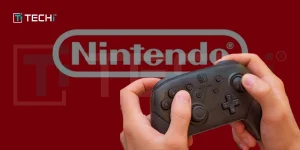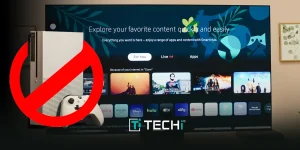Dear Game Publishers, what are you thinking? For years, loyal supporters of your games have dealt with ridiculous price increases, overpriced downloadable content, and silly DRM schemes. Yet now, in these most critical times for the game industry, your idea of repaying them is to make us pay even more? Really?
Furthermore — stooping to an all-time low — EA has stepped up for your industry and decided that users should be pushed (if not forced) to purchase new games only, punishing gamers who legitimately purchase used games. The idea behind this is essential to make them pay extra money for… nothing (or as they put it, “bonus features”, which come with the game when you purchase it anyways).
The fact is that the industry is going through one of its worst downturns in years, proving that the game industry is not recession-proof. This should enlighten you guys as to what is obvious to most: people want more value than ever before. But instead of looking for ways to provide that value to gamers, you look for ways to punish them instead.
So I have a simple question: have you guys lost your freaking minds?
Pushing The Wrong Buttons
The average price for games has gone up over the years: no doubt in response to the massive amount of effort that is required to create these games. But as the initial investment goes up, it shuts out those gamers who would like to play your games but can’t afford to. It also makes people consider their purchases more carefully — driving them to purchase games that can provide the most bang for their buck.
But things have gone wrong. For example: who was the genius that got the brilliant idea that withholding and then selling game content as DLC or expansions would provide more value? Instead of giving your customers the whole experience, some of you specifically plan on releasing that content later as DLC that could have been already been placed in the game. Just another scheme to make more money, right?

But this isn’t The Sims! Eventually, gamers are going to see right through this. And while history would predict that they will pay, regardless of the price. It will still turn even more potential customers away.
Now I haven’t purchased a single computer or console game in well over four years. I have always rented my games from GameFly, and it is worthwhile for me because I typically only play your games for a few hours anyway before I send them back. So if I have managed to avoid paying for your expensive titles for several years now — and I am fully willing to pay for games if I really want them — how do you think millions of other gamers feel about paying for these games?
How many others are there just like me that you have turned away?
It’s no wonder why rentals and used games are so appealing. Hint: it’s your customers telling you something.

But another issue that seems to make you guys steam is piracy. You hate that people acquire, circumvent DRM, and play your games without paying.
But did you ever step back for a moment and question why this happens? Maybe it is the price, of all things, that has been a motivating factor. Maybe if the barrier wasn’t so high, those people who have previously pirated your content would actually pay for it instead, because I am sure that many of them would love to support your efforts.
In case you didn’t notice, the world has been going through some pretty serious economic problems, you know? So, it is time for the industry to adapt.
(Update: Here is a great forum post by Stardock CEO Brad Wardell that goes in-depth about how piracy has impacted PC sales of his company’s titles.)
Second Life
If you want to better yourselves — which you should, before things get worse — you could start off simple.
How about lowering the barrier to entry? You say you want the revenues from a $60 investment per gamer, right? Fine. So why not charge $30 and entice twice as many gamers to shell out the cash for the game? You potentially make the same amount of money (if not more), yet you get significantly more exposure and engagement from gamers. This means more opportunity. And everyone knows how you could (and probably would) exploit that.
(Update: Many have been claiming basic economic theory against my idea of cutting the price in half and doubling the sales. Many are calling me crazy. However, it has been proven to work. Not only that, but sales have exceeded all expectations in these cases. For example, digital distribution platforms like Steam and GamersGate report massive sales boosts by reducing the prices slightly. Paradox Interactive noted a sales increase of 5,500% by temporarily cutting the price by 75% for some of their titles on Steam. That doesn’t sound crazy to me, and game publishers should take notice!)
Downloadable content. You could have developers put more effort into developing DLC, and those gamers who are passionate about your games will almost certainly pay for it. The lower barrier to entry means that more gamers will have the opportunity to purchase this DLC, which could, in turn, eventually result in you making significantly more money than you initially intended! Yes. Making more money! How crazy of an idea is that?

The problem with that is that there will be some of you who urge developers to withhold the development of content to provide a more bare game. Thus, you would require gamers to purchase DLC to have a proper experience. Don’t do it!
And finally, let’s talk about this whole used games mess. Most importantly (before you guys start following EA’s plan to punish those who purchase used games), you could come together to sell used games at a discounted price, while still getting a piece of the pie. Yeah, it is that simple.
Obviously, there are gamers who want to purchase your games without paying full price. They wait and buy used games, resulting in a missed opportunity for you to make money. This also happens at a time when the amount of revenue for your games have probably fallen off quite a bit. So why not provide easily accessible services to compete (or work with) with the likes of GameStop, GameFly, and others to provide used games at a discounted price, thus giving you a way to make money from used game sales? Why not work with the used game market to reap in more profits and sales instead of punishing it?
It makes sense. You make money that you wouldn’t have made otherwise. The gamer gets a great product that can also generate money through DLC. And everyone goes home happy.
(Update: It appears now that EA isn’t the only publisher thinking that they should charge $10 for… well… nothing. Ubisoft is considering charging you an extra $10 as well, simply for purchasing a used game. Every publisher is probably going to adopt this scheme now. So thanks for nothing, EA. Sigh.)
Game Over

But it is clear that things need to change, especially before things get worse.
The game industry is at a critical point where newer technologies are set to be released, being led by the idea of 3D gaming experiences, mobile gaming experiences, and social-aware gaming platforms. It is quite possible that games, as they are known today, will not exist as they are in a few years down the line. And all these plans that you come up with to extract more money from gamers will likely speed up the demise of your industry.
It’s only a matter of time. It happens in every industry, and while the game industry has managed to avoid it, one can’t help but wonder how long that will continue to last.
It can’t. Not unless things change. Not unless you change.





104 User Comments
Jason Dixon
While your article was well-written and fairly reasonable, I find it laughable that you consider yourself a subject matter expert on the pricing model for software. Game publishers have studied and refined the retailer, used reseller and DLC markets over years. They’re not ignorant. They understand what the market will and will not bear. They’ve seen that DLC is a sustainable model, and they will continue to shove it down our throats.
You give your own experience with GameFly as an example of why traditional game sales will falter. Why do you think DLC is being pushed so hard by the publishers? It bypasses the physical media outlet, pinching profits out of retailers like GameSpot and services like GameFly.
Think about it.
Dave Jones
This article makes many obvious errors. First off, look up the concept of supply and demand in an economics textbook. Consumers’ demand curves are downward sloping, so as you correctly point out, the more the companies charge the fewer consumers will buy. However, total revenue = quantity of sales x price. It’s a simple equation. Do you really think the game companies didn’t estimate the effect on their revenue from a price increase? Heck, why not suggest to them that they offer their products for $1? Then they’d make $trillions according to your logic.
Second, you say that changes in gaming are being driven by technology. Do you think that cutting the price of current technology games from $60 to $30 will prevent the social and technological evolution of gaming? It might slow it by a year or two, but there will be no lasting impact. Game companies would be stupid not to maximize profits from a technology that you argue may soon be obsolete.
Finally, higher prices are paid by “more valuable” consumers. A consumer who recklessly buys 10 $30 games will spend little time on each game so they’re less likely to buy additional content. On the other hand, a consumer who is forced to carefully decide which game to devote their attention to because of higher prices is more likely to be committed to that particular game and pay for additional content.
Lai-Lai
Average cost of a game cartrage in the 90s: $50.
Average cost of a game disc today: $50.
Everything was cheaper in the 90s, especially the early 90s. So even though the prices haven;t gone up, it’s liek they’ve still managed to get cheaper.
Raiders757
One question needs to be asked here. Do used game retailers have to pay the same fee used music retailers pay to copyright holders and publishers? If so, those defending the industry have no legs to stand on. I can’t imagine the video game industry not using the same business model. It would be foolish is they weren’t. Copyright holders and publishers in the music industry get a small piece of the used pie, so the playing field is somewhat balanced.
James Mowery
@Craig
Couldn’t have said it any better.
Also, that new DRM scheme where users have to be connected at all times — for Silent Hunter 5 and Assassin’s Creed 2 — is pathetic.